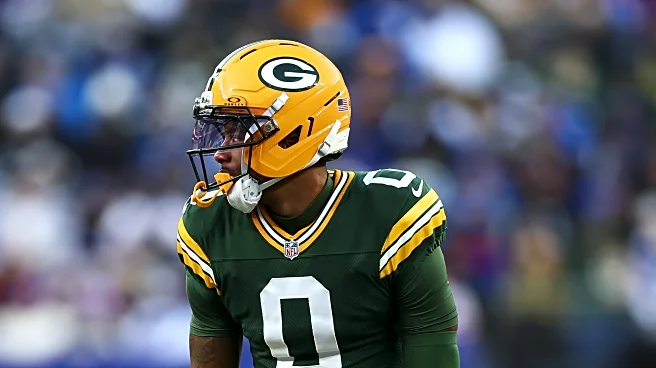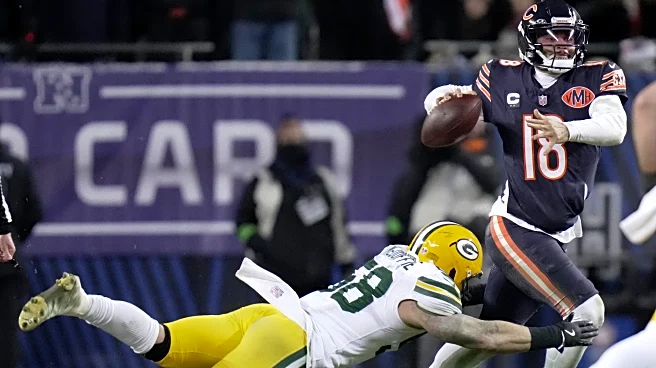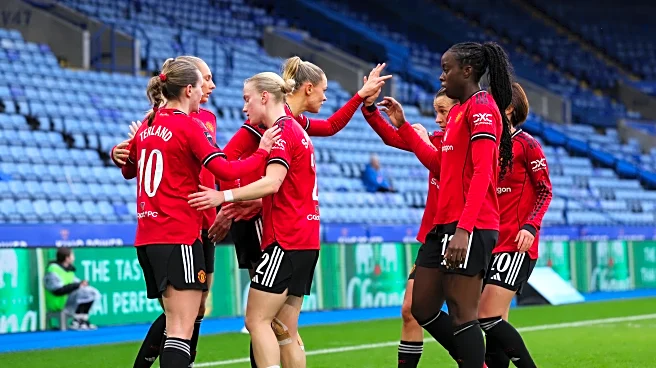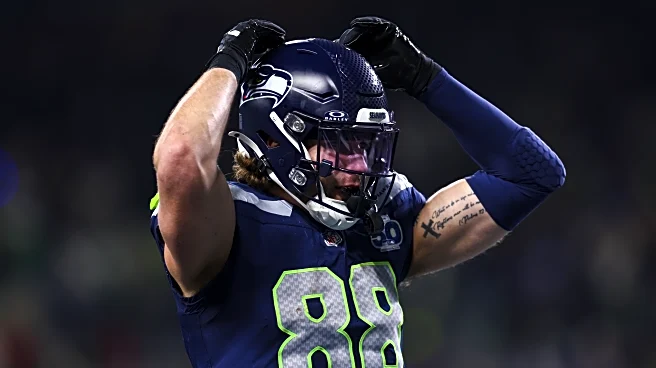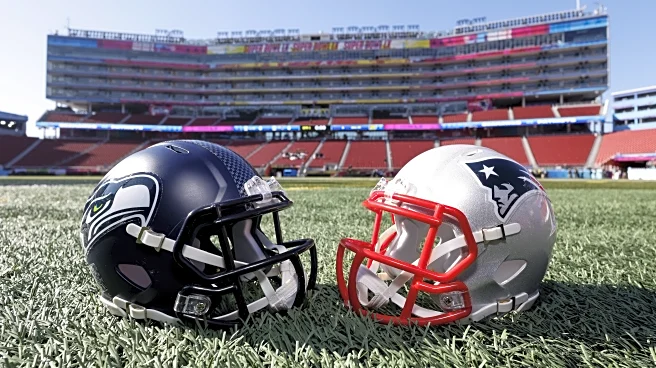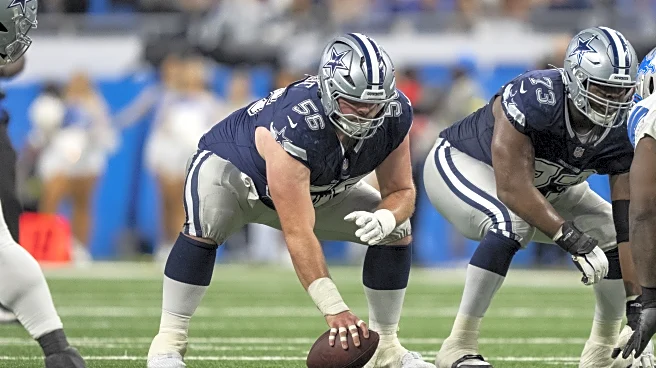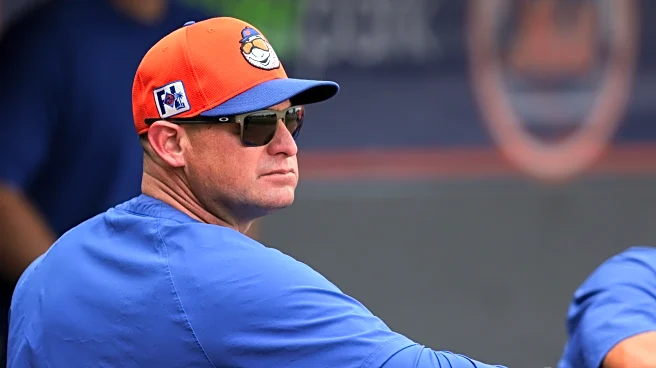What's Happening?
The Atlanta Braves' decision to sign Austin Riley to a record-breaking 10-year, $212 million contract is under scrutiny due to Riley's recent injury struggles. Since signing the deal, Riley has faced multiple injuries, including an abdominal strain that
required surgery, limiting his time on the field. This has led to questions about the long-term value of the contract, as Riley's performance has been inconsistent due to his health issues. Despite these challenges, Riley remains a key player for the Braves when healthy, known for his strong hitting abilities.
Why It's Important?
The situation with Austin Riley highlights the risks associated with long-term, high-value contracts in professional sports. For the Braves, Riley's injuries pose a significant challenge, potentially impacting the team's performance and financial flexibility. If Riley cannot return to form, the Braves may need to explore alternative strategies to maintain their competitive edge. This scenario underscores the importance of balancing player potential with health considerations in contract negotiations, a critical factor for teams aiming to build sustainable success.
What's Next?
As Riley works to recover and return to peak performance, the upcoming season will be crucial for both him and the Braves. Riley will need to demonstrate his ability to stay healthy and contribute consistently to the team. The Braves, on the other hand, may need to consider contingency plans if Riley's injury issues persist, potentially exploring trades or other roster adjustments. The team's management will be closely monitoring Riley's progress and evaluating the long-term implications of his contract.


